Still super cute, though I'm less a fan of the whole thing now that Soboro and Musubi have dialogue and such. It's funnier without, I think.
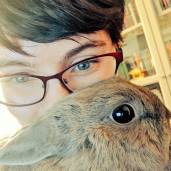
Still super cute, though I'm less a fan of the whole thing now that Soboro and Musubi have dialogue and such. It's funnier without, I think.
Broadly really valuable, though at times the tone grated (saying “womp womp“ after various comments on legislative setbacks and such got me for some reason), and really depressing. Not too surprising, for me; I was aware of the theory, and many of the examples.
More optimistic than I expected, at the end!
There are some good points buried in here, but the author is kind of rambly and I found it fairly unstructured: the argument doesn't lead anywhere, it's the same thing repeated over and over.
The author's also, despite stating a fear of robots and AI, weirdly pro-AI (see my previous quote image) and certainly doesn't mind boiling the planet to have something to fill out a chapter.
I can't recommend.
Gah, stop, Doctorow -- I'm already dead.
SO many examples and it's all so depressing.
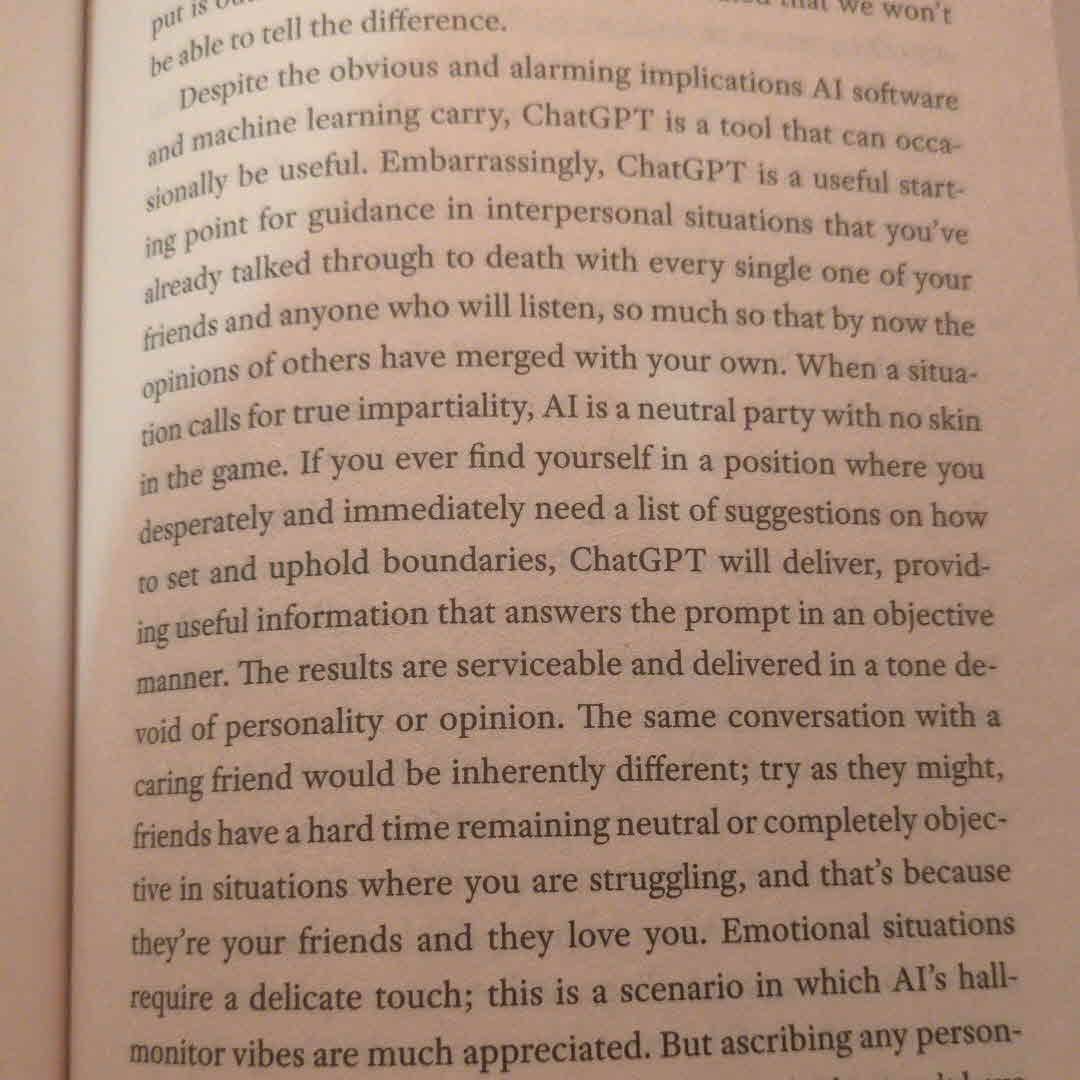
This whole page, but "When a situation calls for true impartiality, AI is a neutral party with no skin in the game" is what made me reach for my phone to take this pic.
Book cruising towards DNF at the speed of light.
This was pretty interesting! Not a lot that was surprising to me, and more about big cats than domestic cats which hadn't been my expectation, but it went deeper into some of the evidence.
Some of the anecdotes were a bit disconnected from the narrative/felt like they just petered out, but mostly it was interesting.
Yaaay, Cinema Dungeon time!
Also loved the little extra where Huiwon guessed that Hyeonseong's sponsor is Captain America. As far as I know it isn't, but she's not wrong: it'd fit.
Ohhh I am finding this harder to get into than I thought I would. Reynolds' intro mentions a family member accusing her of “verbal diarrhoea“ and sure it's not a nice phrase, but I think I get why. Someone please teleport her to the *point*.
The point of the prologue: hatred of “like“ is ageist and sexist. There is no proof that using the word “like“ as verbal filler is a sign of stupidity. Also, people say Reynolds is wordy and that's mean.
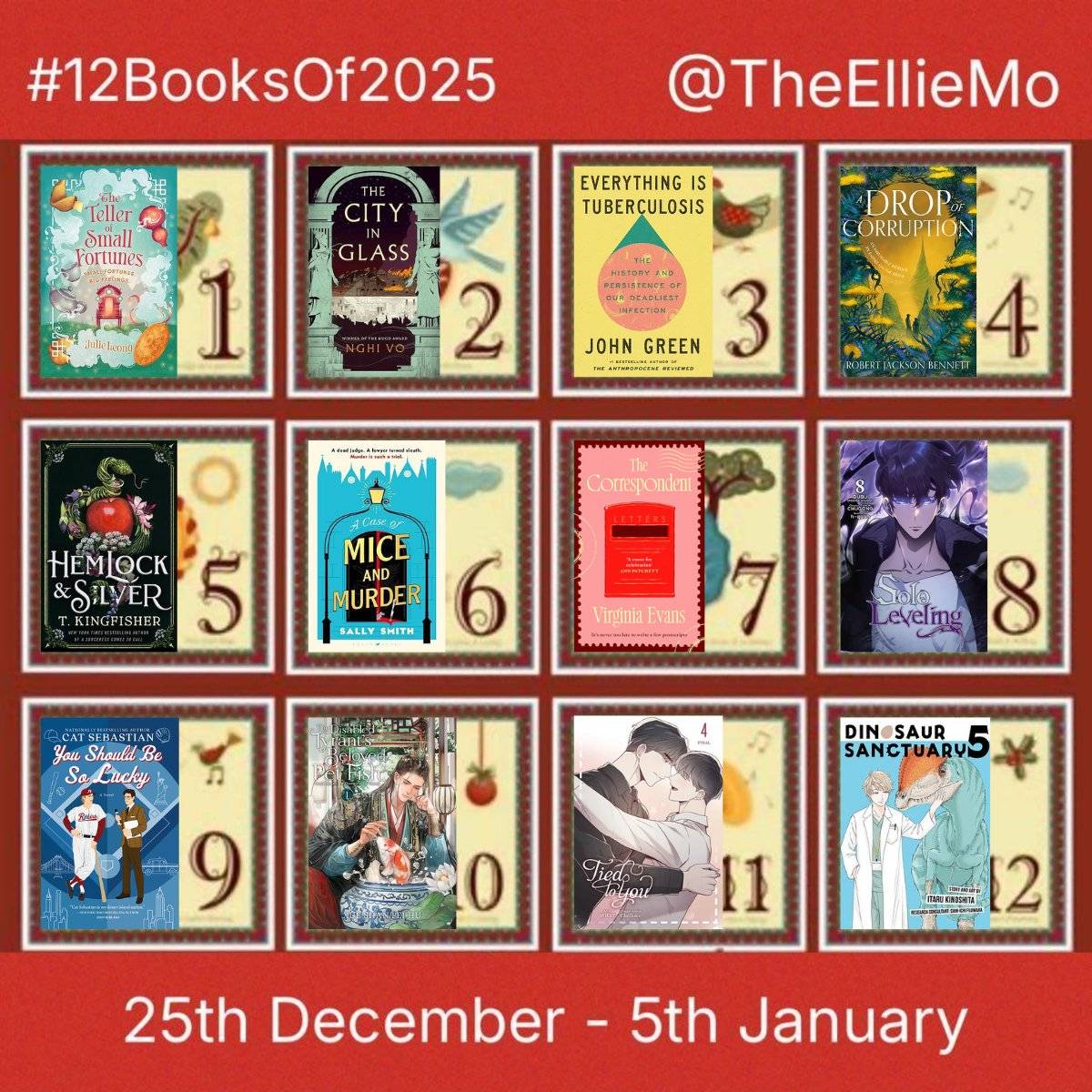
The Dinosaur Sanctuary series has to be my pick for December. I did also love Omniscient Reader's Viewpoint, and the Solo Leveling light novels... but Dinosaur Sanctuary is so lovely and fun and nerdy. They have a dinosaur consultant and use up-to-date theories! I loved it, I can't wait for more.
#12BooksOf2025 @TheEllieMo
Gaah, I'd forgotten that not a lot gets explained at this point because Jinwoo kills the architect. The pacing feels a little off, but that explains how there's three more volumes.
As ever, lots of fun. Some genuine-feeling peril for Jinwoo here, though in the end you know he'll win.
Another fun volume! Huiwon is pretty awesome -- I understand why her storyline bothers some people (she's initially found injured after an implied attempted sexual assault), but it's a huge part of why she becomes such a powerful character with specific attributes. It makes sense.
The manhwa seems very faithful to the light novel so far.
This sure made me feel old, ahaha. 💀 Some of the trends I knew about, but others I really had no clue about at ALL (probably partly because Tiktok doesn't interest me, not even Booktok).
I did feel that the author is so enmeshed in the algorithm-pleasing himself that I'm not certain he can see it clearly, but it was an interesting read anyway.

Technically I had a 5* rated book, but looking back at it I might drop it by one star: it wasn't that memorable after all. This series, however, is living rent-free in my head. The romance isn't healthy, but that's not a mistake on the creators' part -- it's an intentional exploration of how a romantic idea (fated partners, basically) can be creepy when obsession is involved (even when the obsession has attractions).
#12BooksOf2025 @TheEllieMo
Halfway through, and Jeju Island's been dealt with! I'm looking forward to the longer-form explanations of the monarchs etc, actually.
This volume ends on a cliffhanger, with Jinah under threat as Jinwoo goes into a dungeon. Can't wait to start on the next one, even though I do know what happens!

This danmei series is just too silly and sweet not to highlight! Definitely a favourite of this year; Li Yu and Prince Jing live in my heart. As the series goes on, there's quite a bit of court intrigue and a lot of romance, and a LOT of silliness... and it all starts here.
#12BooksOf2025 @TheEllieMo
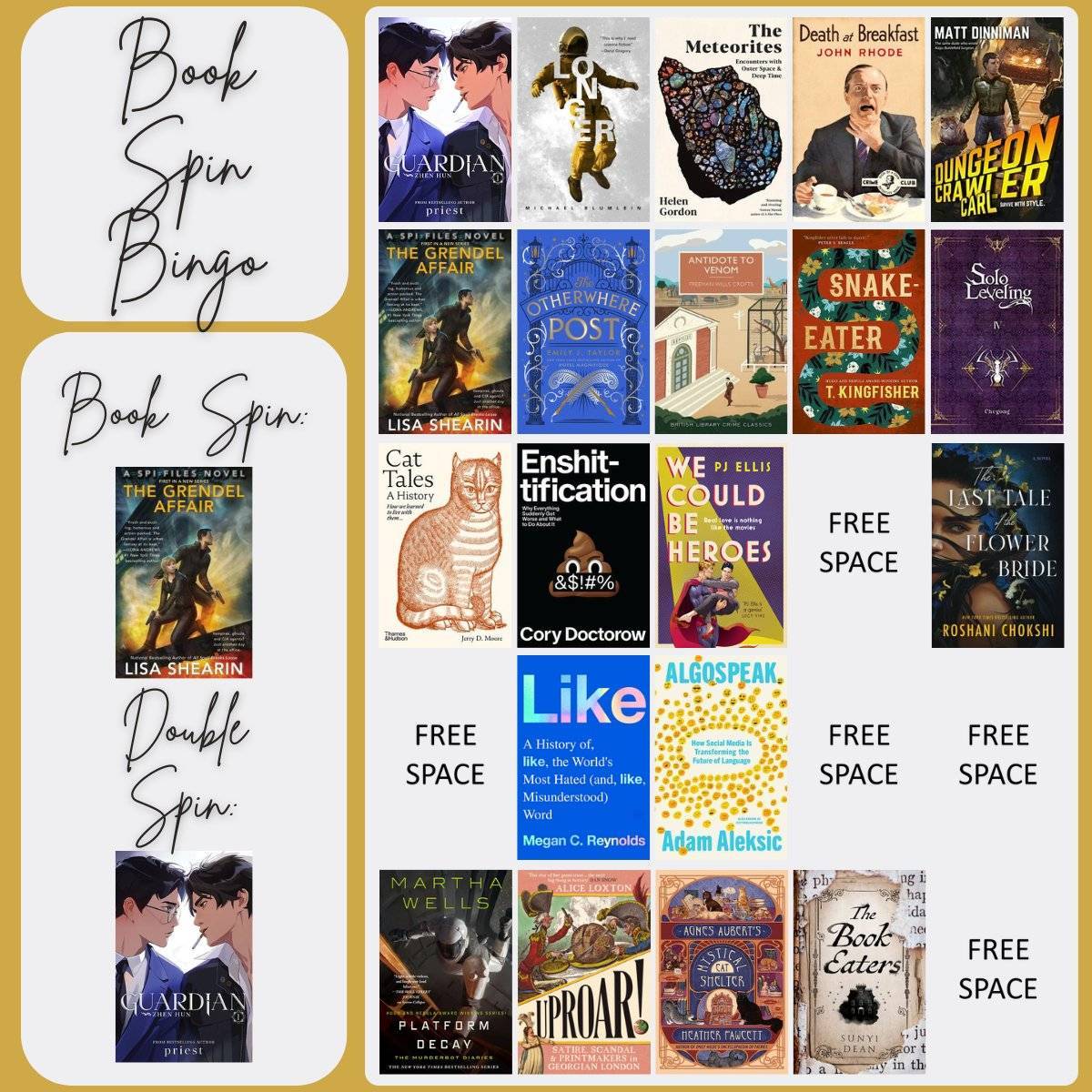
I took forever to decide, and even had to avoid Litsy for a bit today to avoid seeing the numbers, but finally managed to sort myself out. Behold, this month's #BookSpinBingo board!
I did have a format that was working well for me with 10 backlog books, 5 books bought in the current year, 5 borrowed books and the five wildcards, but this month I just mostly went by whim since last month it didn't inspire me.

There's no other possibility for September, it has to be this. So well written, such lovely characters, such a lovely romance.
#12BooksOf2025 @TheEllieMo
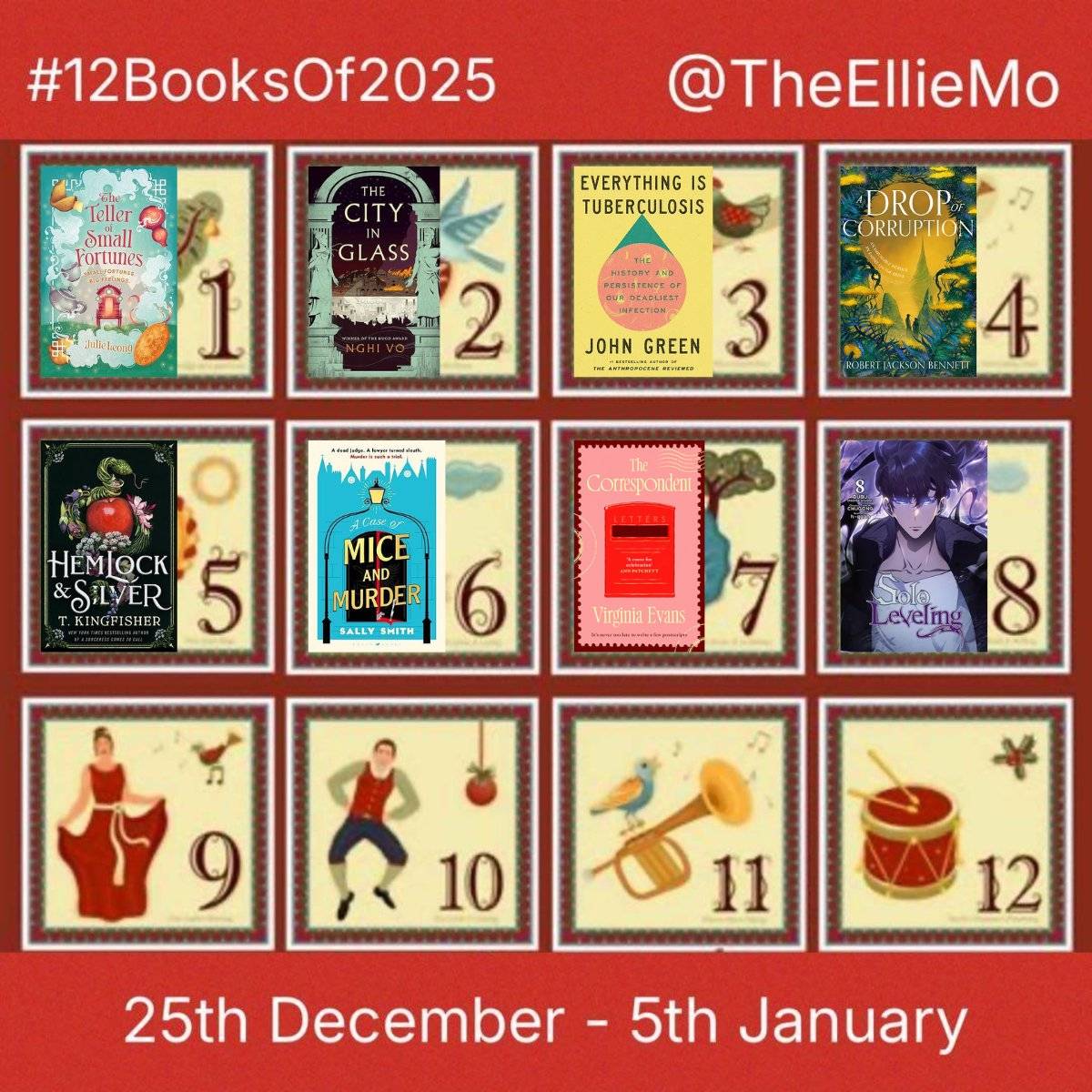
I had to include some of the Solo Leveling manhwa in here somewhere! There were a lot of four star reads in August and no five stars, and this was a volume I particularly liked as Jinwoo protected Jinah. Also, as ever
Honourable mention to Rachel Harrison's Cackle, though! I was very torn.
#12BooksOf2025 @TheEllieMo
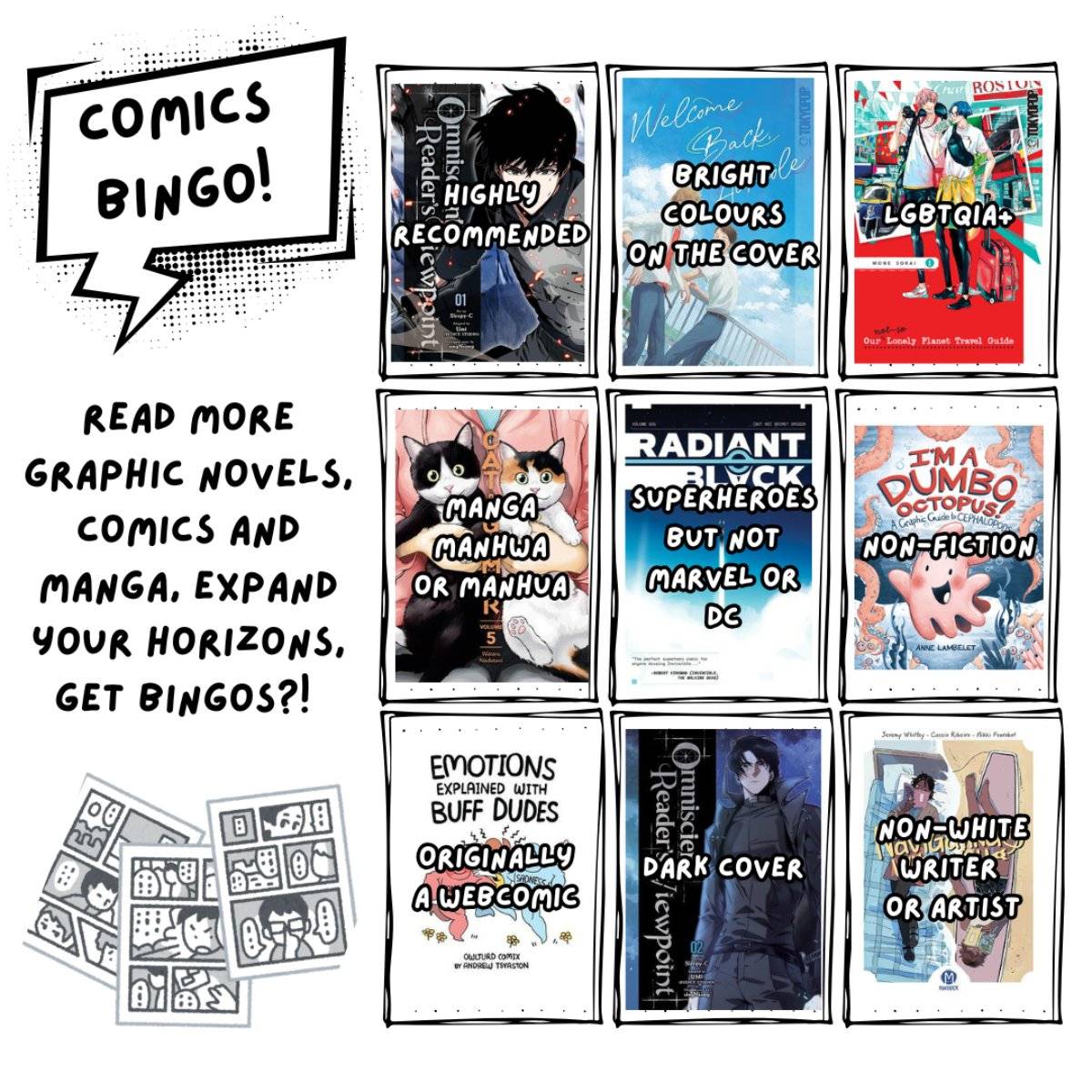
Again, pretty close to the light novel, so no major surprises. Some of the characters don't look how I imagined, but now I can't imagine them any other way, so that's pretty neat.
This was my 400th (and final) book finished in 2025, and also finished off my second #ComicsBingo card!
The manhwa is a pretty close adaptation of the light novel, which I read pretty recently, so not a lot jumped out and surprised me. I like the art, which is similar in style to Solo Leveling (which makes sense, both Redice Studio). Sometimes the light novel explains things better, sometimes the manhwa.
I'm having fun and definitely want to read more.
Somehow I'm feeling the Dokja/Joonghyuk vibes more from this though.
I'm starting to feel disappointed that there's only 8 volumes, because I'm going through them so fast. This one features some foreshadowing about Jeju Island, along with Jinwoo's rank up to S rank (officially), his stint on the mining team, and some of his time in the tower. (Dude, Esil has a crush on you...)
There are a couple of threads that feel like they get dropped in the manhwa, curious how it works out here.
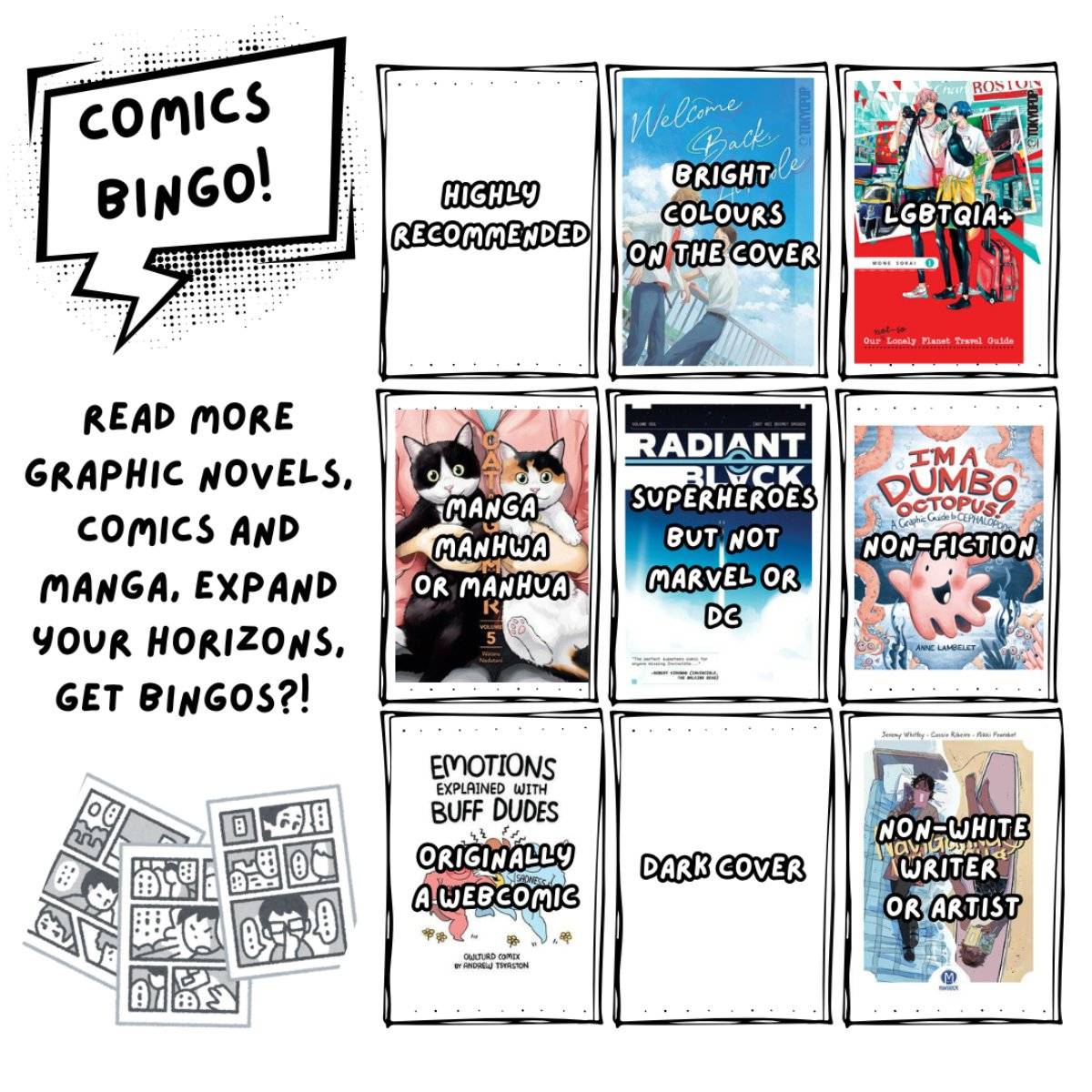
This is definitely intended for kids, but I couldn't resist anyway because cephalopods! And I definitely learned some new cephalopod facts, so there.
It's really cute, with a tiny bit of a story to avoid just being a recitation of facts.
#ComicsBingo

There were no five star reads in July, but a cluster of really good four-stars. I'll say this is the one, because I've featured books by the runners-up on here already (being T. Kingfisher's Clockwork Boys and Sally Smith's A Case of Life and Limb), and because I really did enjoy how this one committed to being epistolary, and the slow revelation of character.
#12BooksOf2025 @TheEllieMo
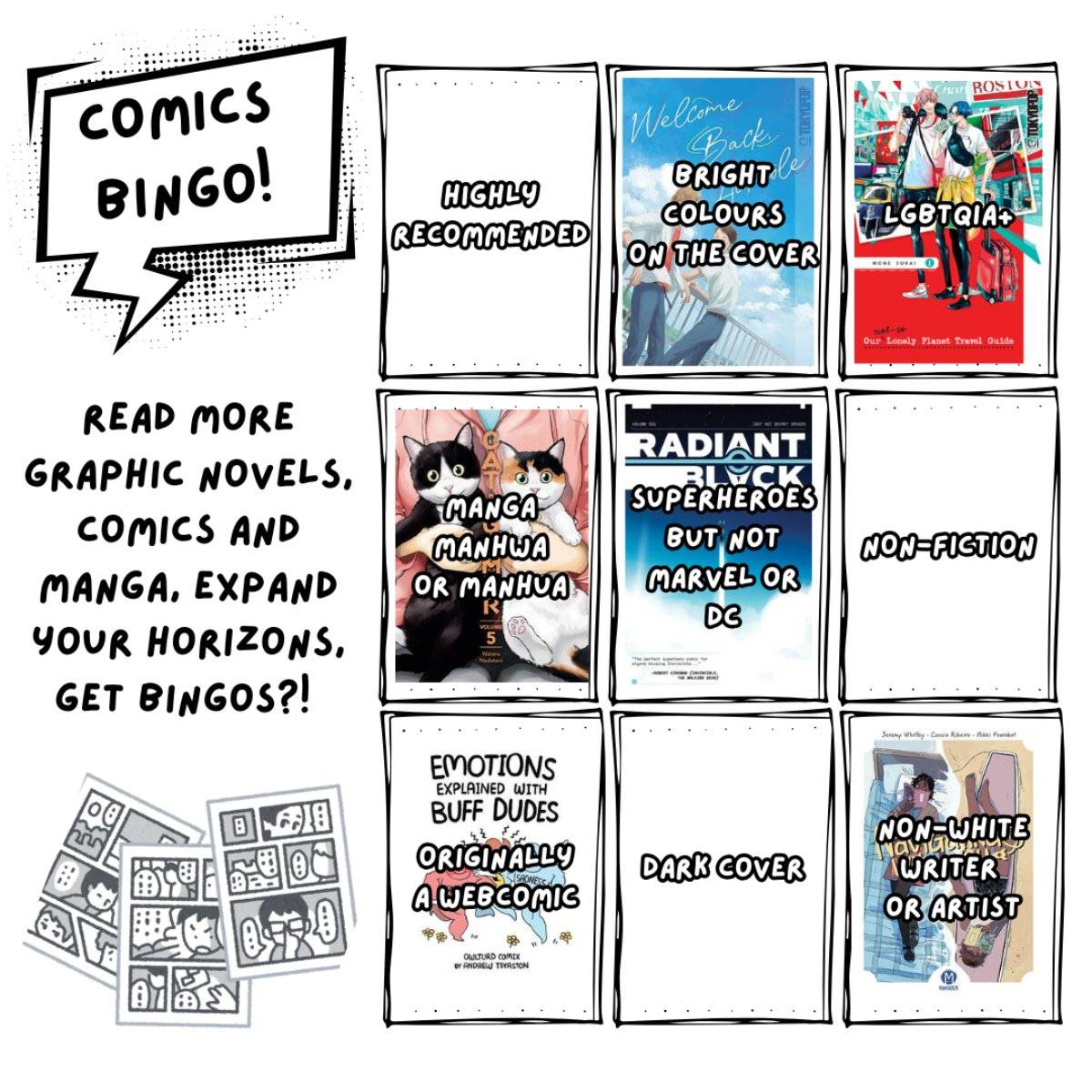
Light pick again. The relationship is cute, but Asahi's internalised homophobia is not so fun to read (nor his insecurity). Not sure if I'll read more, maybe?
#ComicsBingo
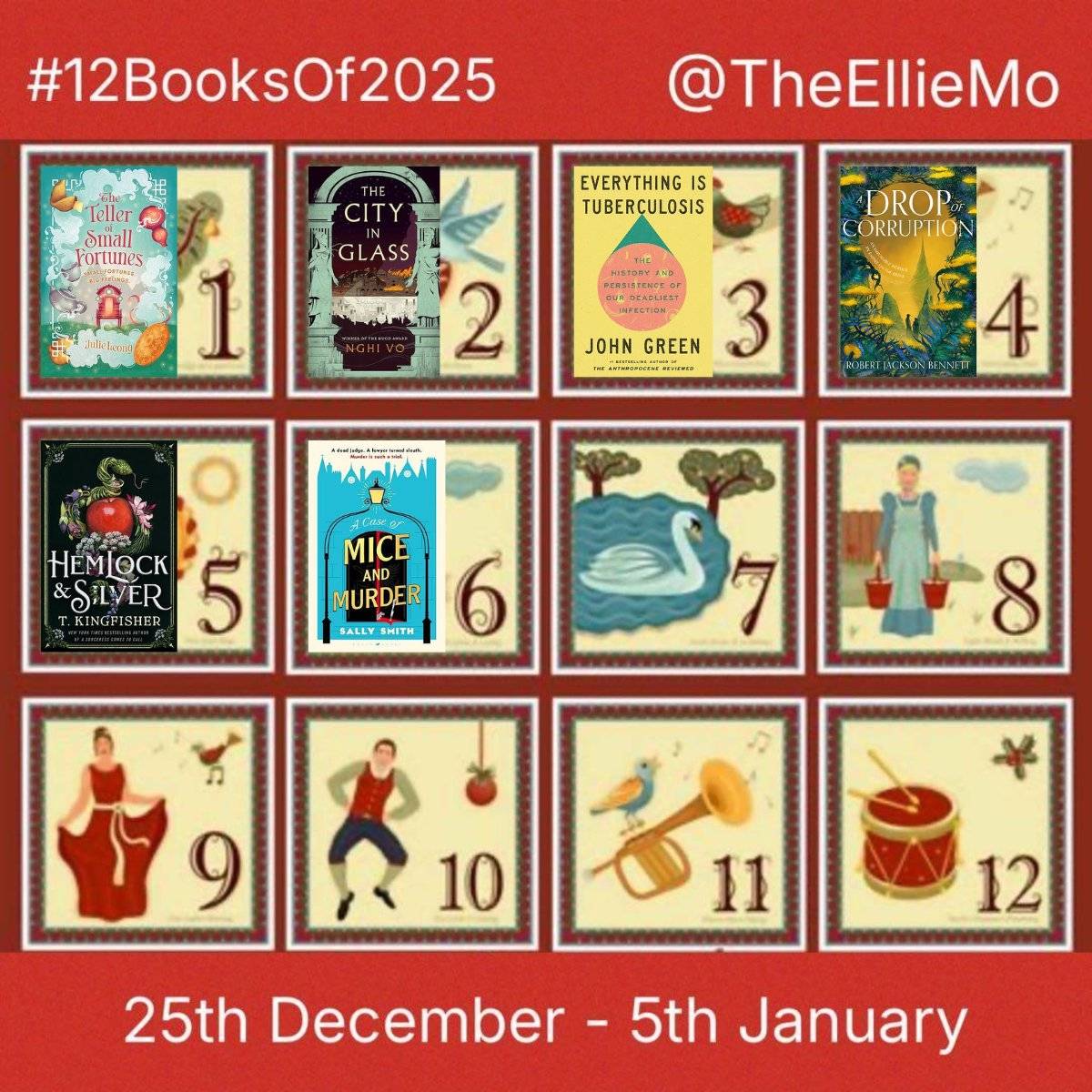
My five-star reads in June were rereads, so I picked one of my four-star reads instead. The competition was definitely the Solo Leveling manhwa, but... a good mystery series deserves a spotlight. I really liked the setting, and ended up surprisingly keen on the main character, who seems at the start like he'd be stuffy.
#12BooksOf2025 @TheEllieMo
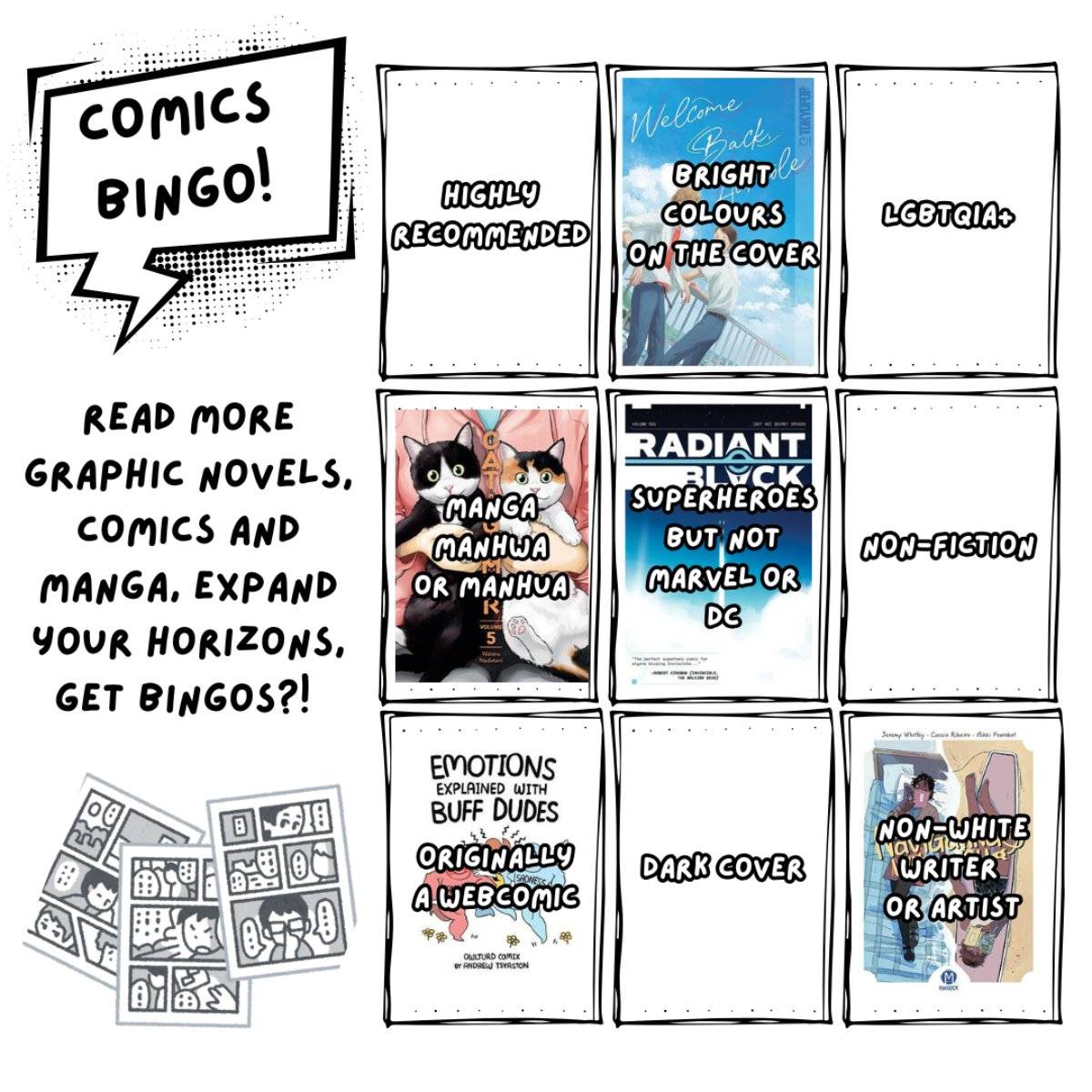
This was okay, a fairly standard superhero start. Interesting that it cuts in the pages of the book that Nathan's trying to write, and that we get a hero swap partway through. I kinda wonder where it's all going, but maybe not enough to read more. It's a lowish pick.
#ComicsBingo
Steamed through this one too! There aren't any major changes in the manhwa compared to this, except I think we get a bit more of side characters' perspectives (like Park Heejin, who I remember very little about from the manhwa).
The scene with Jinho saying Jinwoo's like his brother is so cute. 🩵

I didn't love the art, but the story was cute: two friends are out of step when one develops feelings for the other, but slowly they grow back together again.
I'm hoping to finish a second #ComicsBingo card and my 2025 reading goal of 400 books total by the end of the year, but I'm starting to cut it a bit fine!
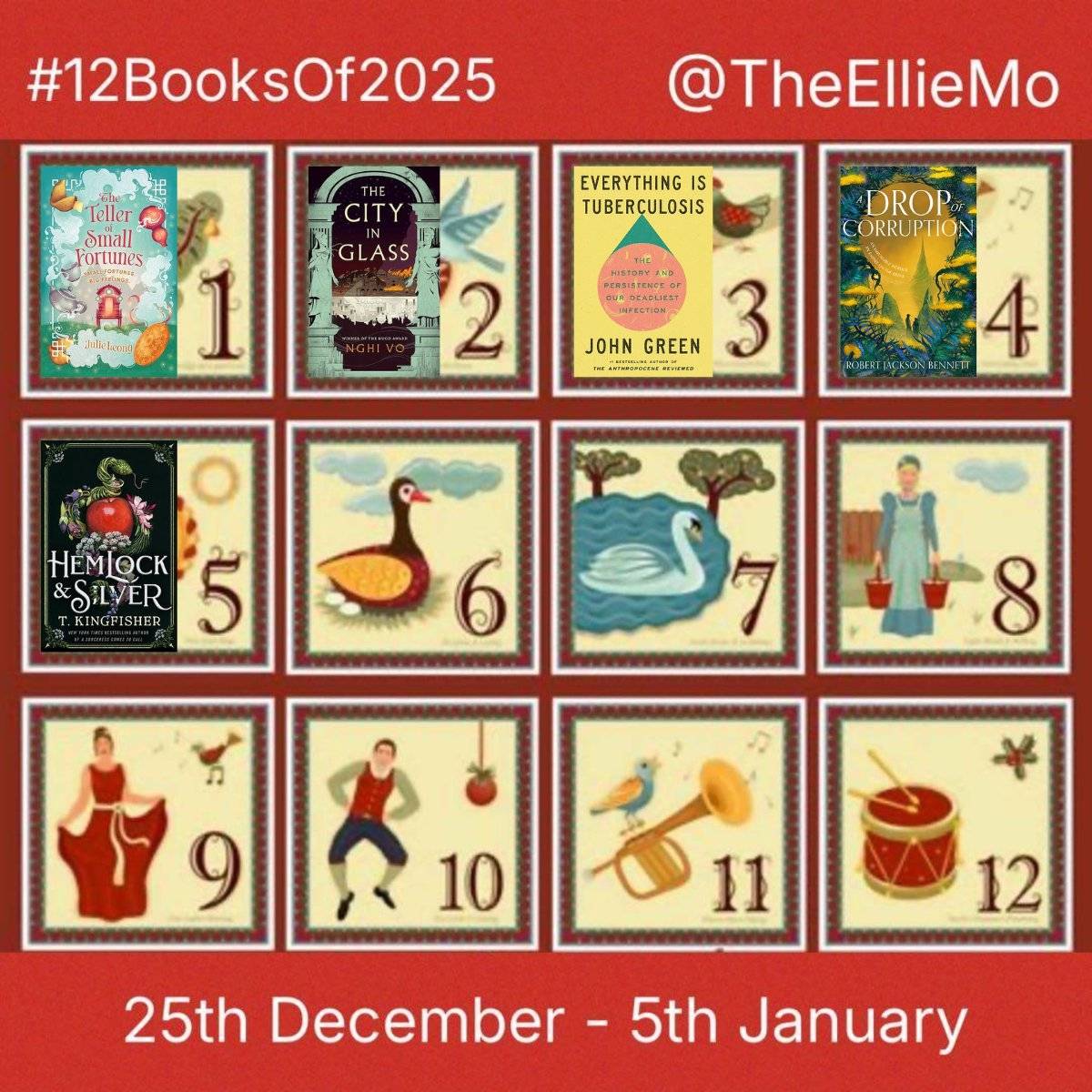
I had six five-star reads in May 2025, so it was hard to pick the top one. Definitely honourable mentions to Sylvie Cathrall's A Letter from the Lonesome Shore and Sau Fong Chan's Chinese Dress in Detail! But Hemlock & Silver was a lot of fun, very characteristically a Kingfisher book with a really fascinating interpretation/retelling of the Snow White story.
#12BooksOf2025 @TheEllieMo
The story of food, mostly major food groups, methods of gathering food or techniques for preparing for food (rice, maize, bread; hunting, fishing; baking, fermenting... etc etc), illustrated via images of stuff held by the British Museum. It's fairly milquetoast, especially coming off having read The Hungry Empire (which itself wasn't THAT fiery) -- it doesn't even begin to engage with why certain foodstuffs spread, for instance... (cont)
I figured this out (mostly) a bit ahead of time, definitely fair-play. There's no major emotion here, it's mostly a puzzle, but I found it very soothing and absorbing.
And that's the 100th book from my backlog read in 2025! Which meets my goal for the year.
Had a goal to read books from my backlog this year, and I have two to go... so picked this one up rather on a whim. I'm finding it pretty fun. Very sedately classic in its tone. Made me think I should see whether there are more of John Rhode's books currently in print, really!
Gonna take a little break and then probably finish it up.
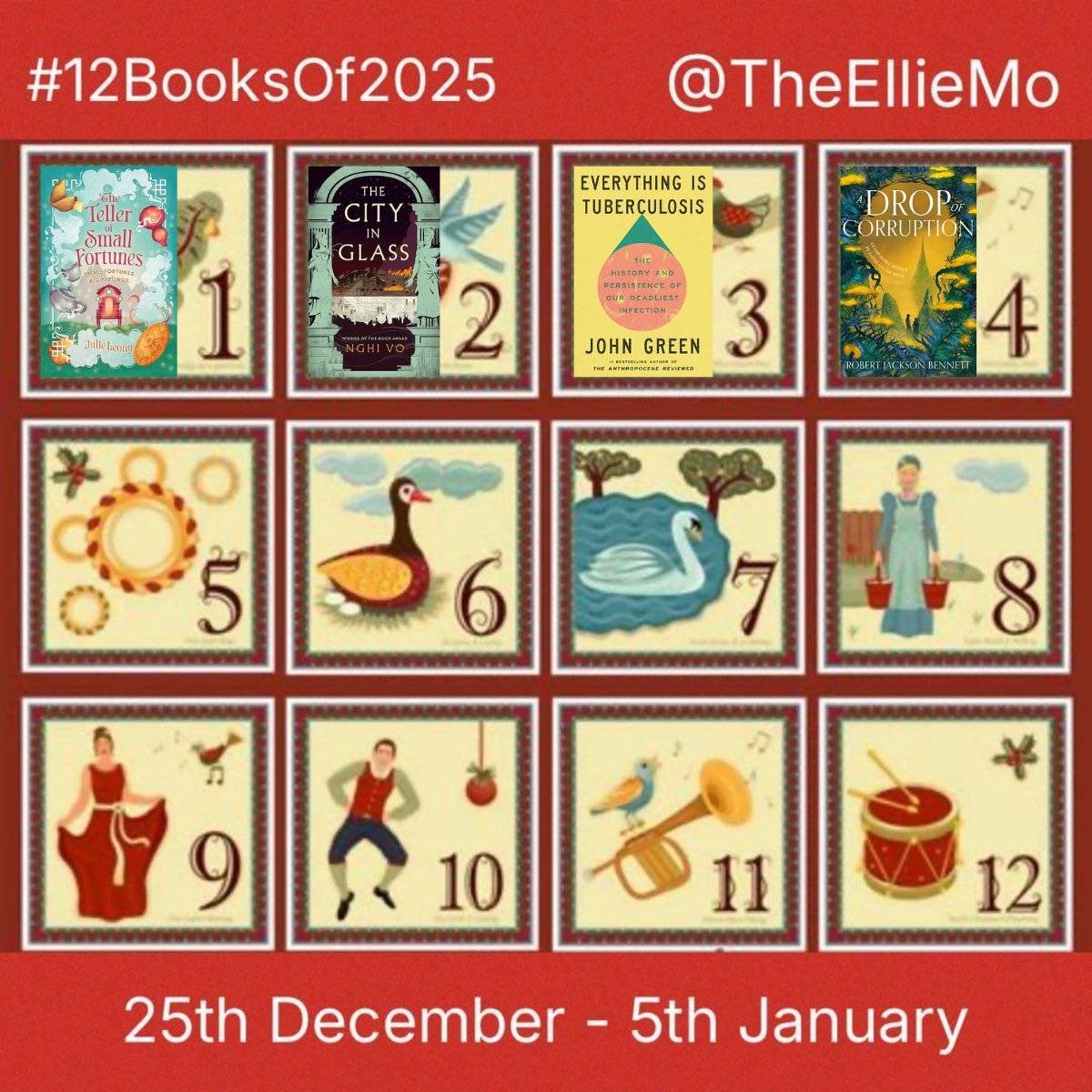
A Sherlock Holmesian type mystery in a fully realised, highly detailed fantasy setting (with some eldritch horror creeping around the edges). It completely took over my brain while I was reading it, and reminded me to immediately buy my mother a copy of the first book to try and get her hooked too.
#12BooksOf2025 @TheEllieMo
A fairly good short primer to the Wall, its purpose, the sequence of use there, etc. Tries to contextualise it in terms of what's going on in the empire at each stage, though that's quite complex and this is a short book. Some interesting images, but hard to make out properly due to being printed in black and white.
Overall, not bad, I enjoyed it well enough.
I know the story from the manhwa (which is up to this point preeetty faithful to this version), but it was still fun to read it in this format and get just a little more of the detail. Jinwoo is so clueless about people's feelings, ahahaha.
Enjoyed it a lot.
From the introduction: ...“today's fashionable hostility to empires“...
Sir, what? Am I about to read a book lauding everything the Roman Empire ever did...?
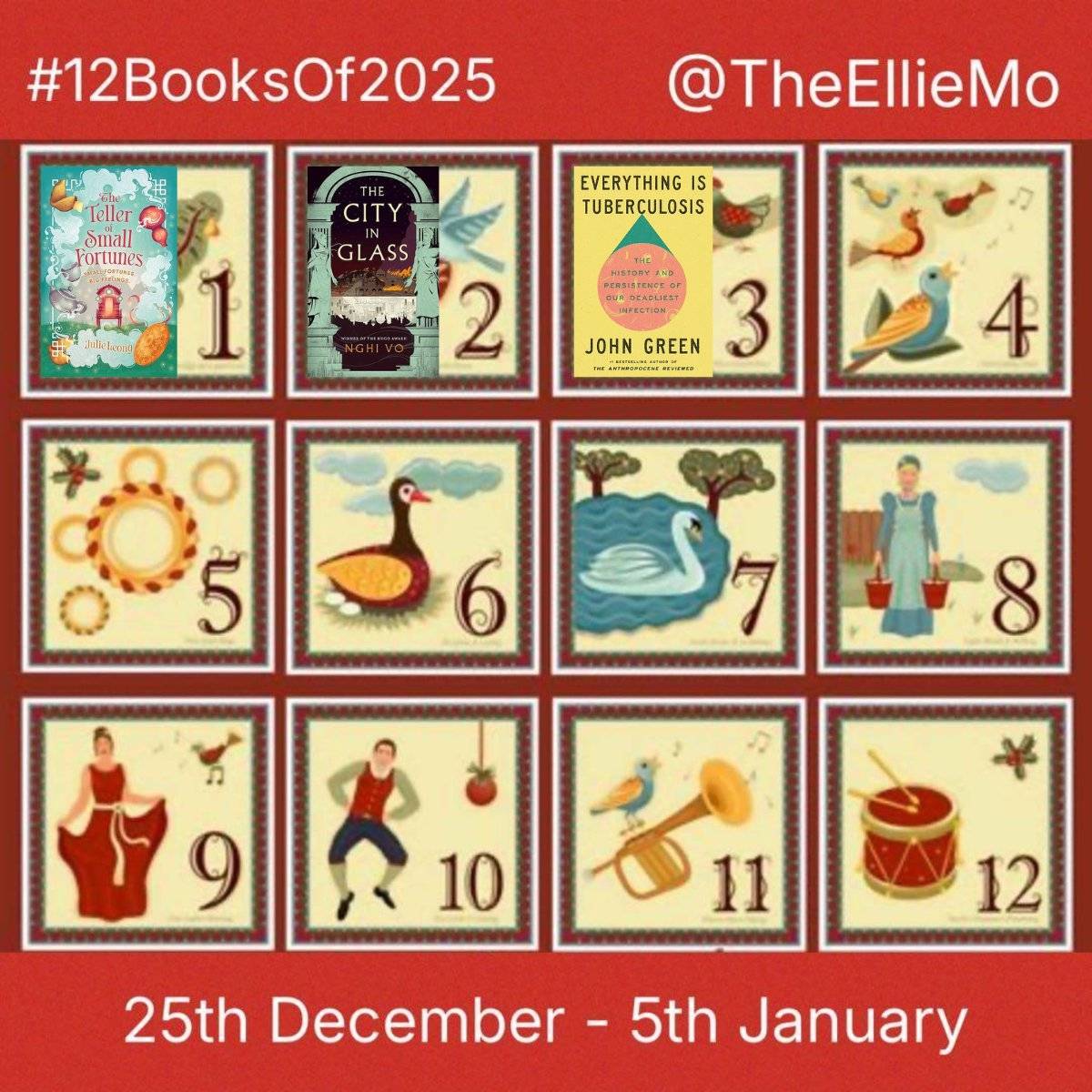
No possible question here -- Everything is Tuberculosis was my best book of March 2025. It's a topic I love a lot, of course, and Green's treatment of it is very readable and informative on a topic that people don't realise is still as vital as it is.
#12BooksOf2025 @TheEllieMo
This is fascinating, covering various lost sites and even whole towns in Wales that were demolished or abandoned mostly in the last 50 years. Some are known to my parents; some of the sites at least are known to me.
Given the timing and theme, the lack of inclusion of Capel Celyn feels odd. Maybe it was too similar to some of the other stories -- or too politically charged for ITV, where the documentary this is based on was aired.
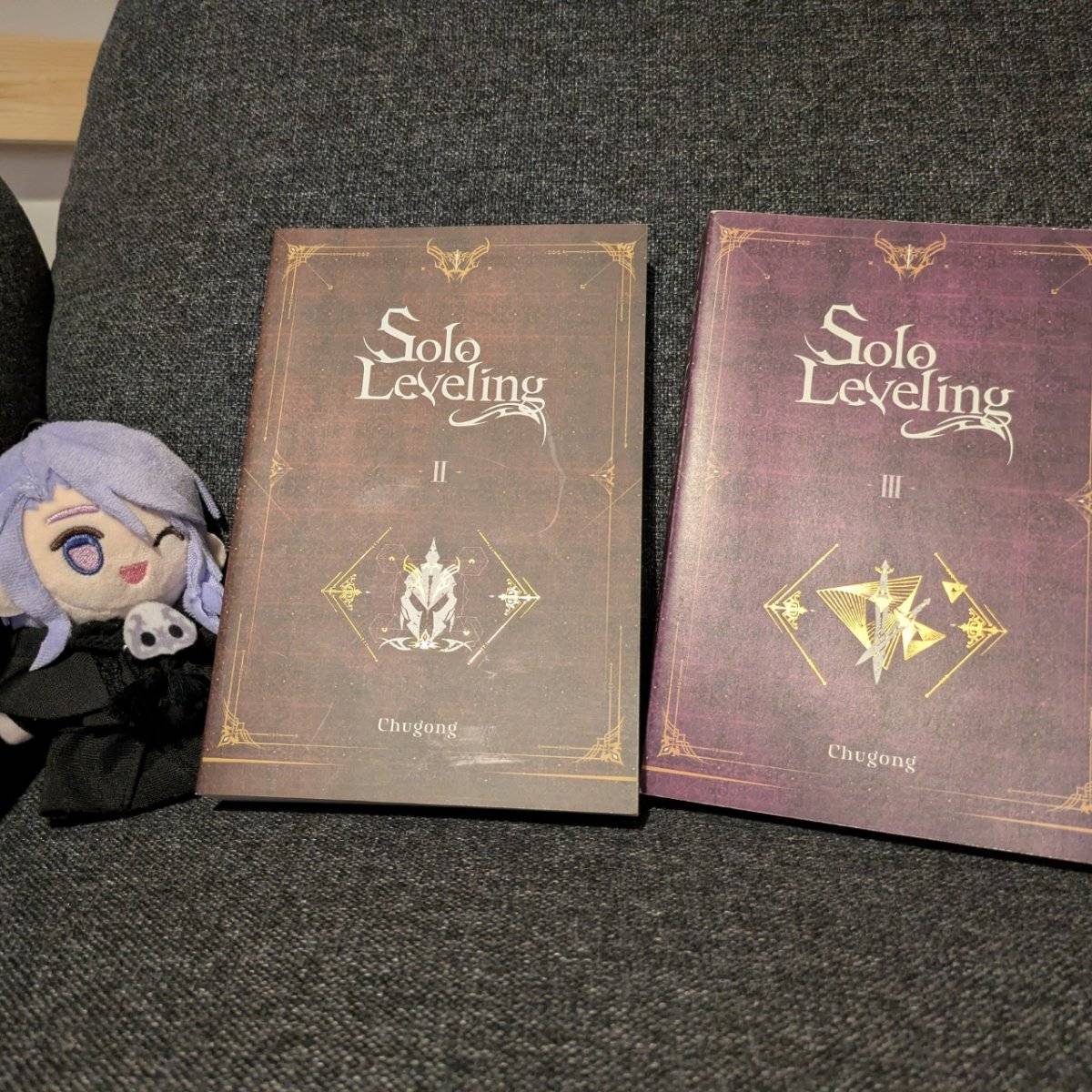
I started on this on Christmas morning, while waiting for my wife to get up (we got to bed late because of Christmas prep, but I can't sleep in on Christmas morning). I was tearing through it, already pouting about the wait for the next volume because stuff won't be shipped for a few days...
Look what my sister-in-law (to be) got me for Christmas! Whew...
Feat. my “new old friend“, a little plush Hythlodaeus from FFXIV, which my wife got me. 😁
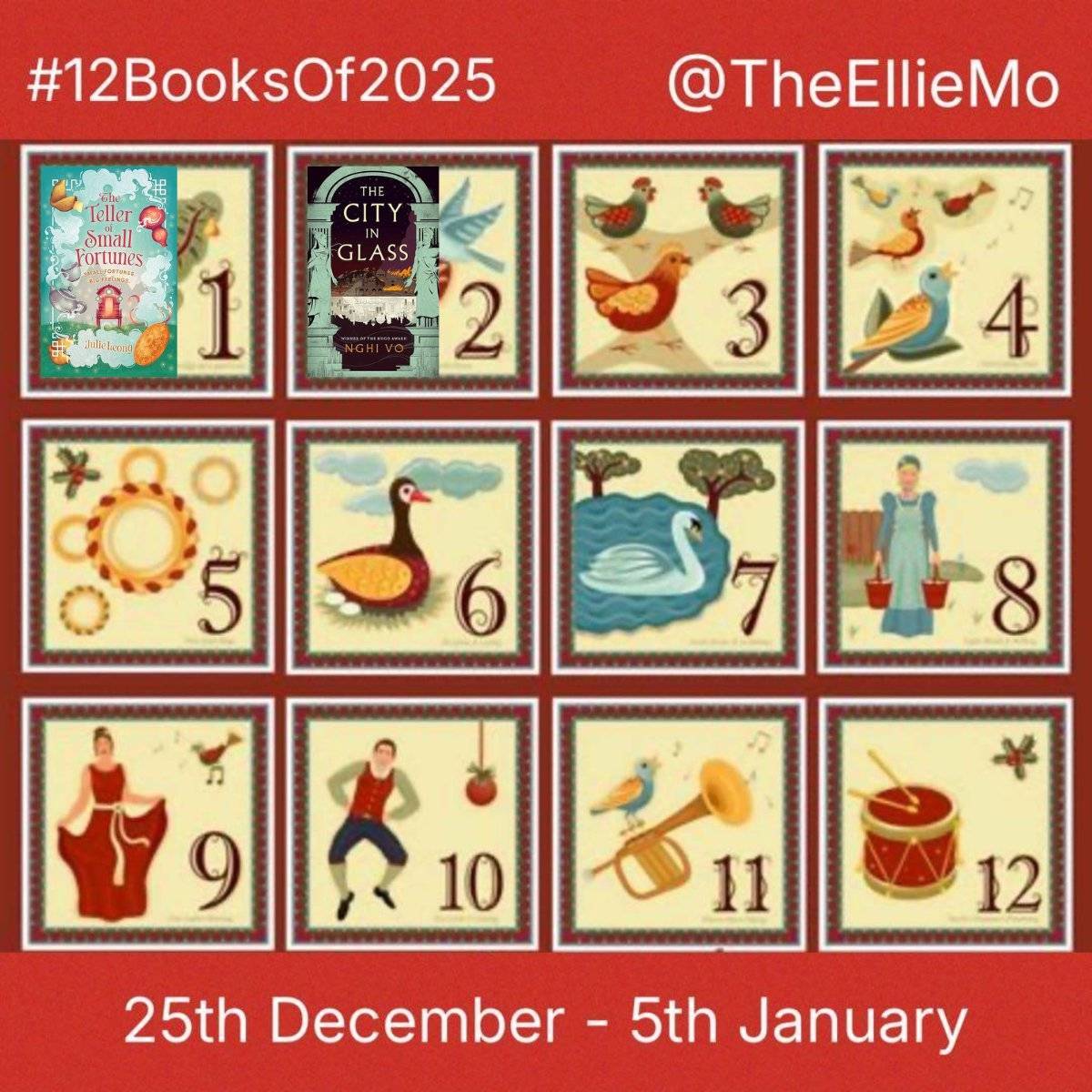
I waited way too long to read The City in Glass, but I always love Nghi Vo's work so it once again pips the Sarah Caudwell books I read in the same month to the post. The City in Glass is a strange fever-dream of a book, and beautiful.
#12BooksOf2025 @TheEllieMo
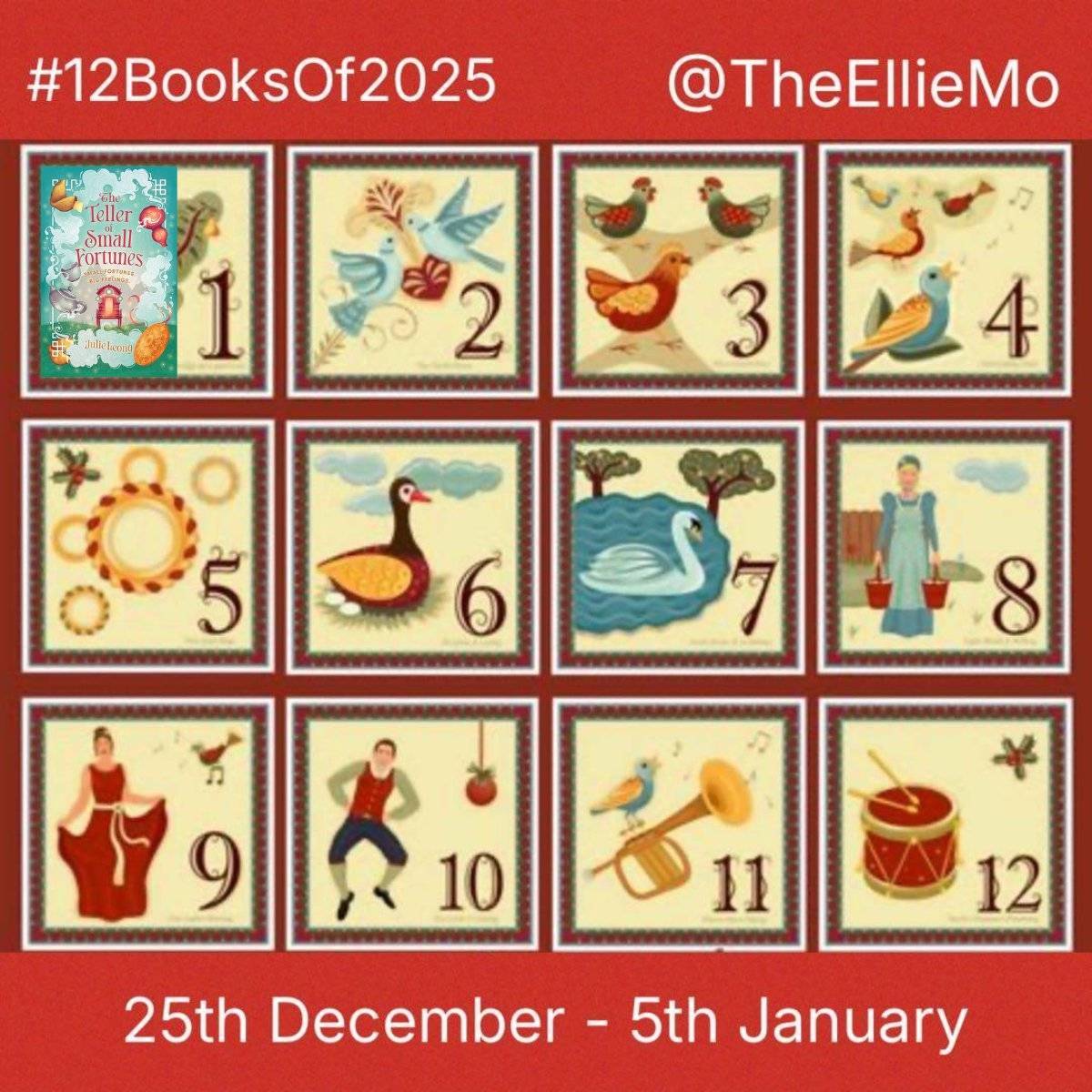
This was my only five-star book in January, so I think it takes this spot by default! Sarah Caudwell's Thus Was Adonis Murdered is a close runner-up, but I loved that this was a self-contained story with relatively personal stakes and small daily magics.
The way Tao's ability works and her attempts to pick out small, less-consequential fortunes (which nonetheless can tug on big threads despite her efforts) was fascinating.
#12BooksOf2025
Definitely some aspects of food history I had little knowledge of, but this one's a bit slow (or at least, it was for my tastes).
And that's my #DoubleSpin, and at least one line for #BookSpinBingo. Wooo.

My list was carefully planned to meet my reading goals, and I could technically complete it in the remaining time, but it's tight... and I'm in a mood reading moment.
I kinda still want to get a #BookSpinBingo blackout and complete #10BeforeTheEnd, but at the same time, a couple of new books are calling to me, and I don't think I can read those and manage the lists.
In the end I should go with my whim and not make reading a chore.
David Hone's books have all been most excellent for this dinosaur nerd, and Witton's illustrations help me picture what some of the speculations here would've looked like. I'm not particularly interested in the spinosaurids per se, but I enjoyed all this all the same.
Discusses how pleasure-seeking is part of activism, sometimes in ways I don't personally “get“ (like raves) but also in ways I do (taking care of one another and finding community). It was interesting to read.
I'm having a lot of fun with this world! Kinda mad there's not more volumes of the official British translation, I kinda want to tear through it all. Oh well.
I love that Dokja doesn't sound particularly altruistic, but he IS hoping to save people.
Very cute, as ever. They make nice filler books between more serious stuff.
I found the dismissal of the bond between an adoptive parent and a child rather weird, and worked out the culprit fairly swiftly based on instinct as much as clues, but it was okay. Not a favourite, but a pleasant enough read.
This was pretty fun! It definitely manages to capture some of the sense of the magic of Paris and of creation, and I got pretty into Clara's adventures (and her romance).
This was my #BookSpin, too.
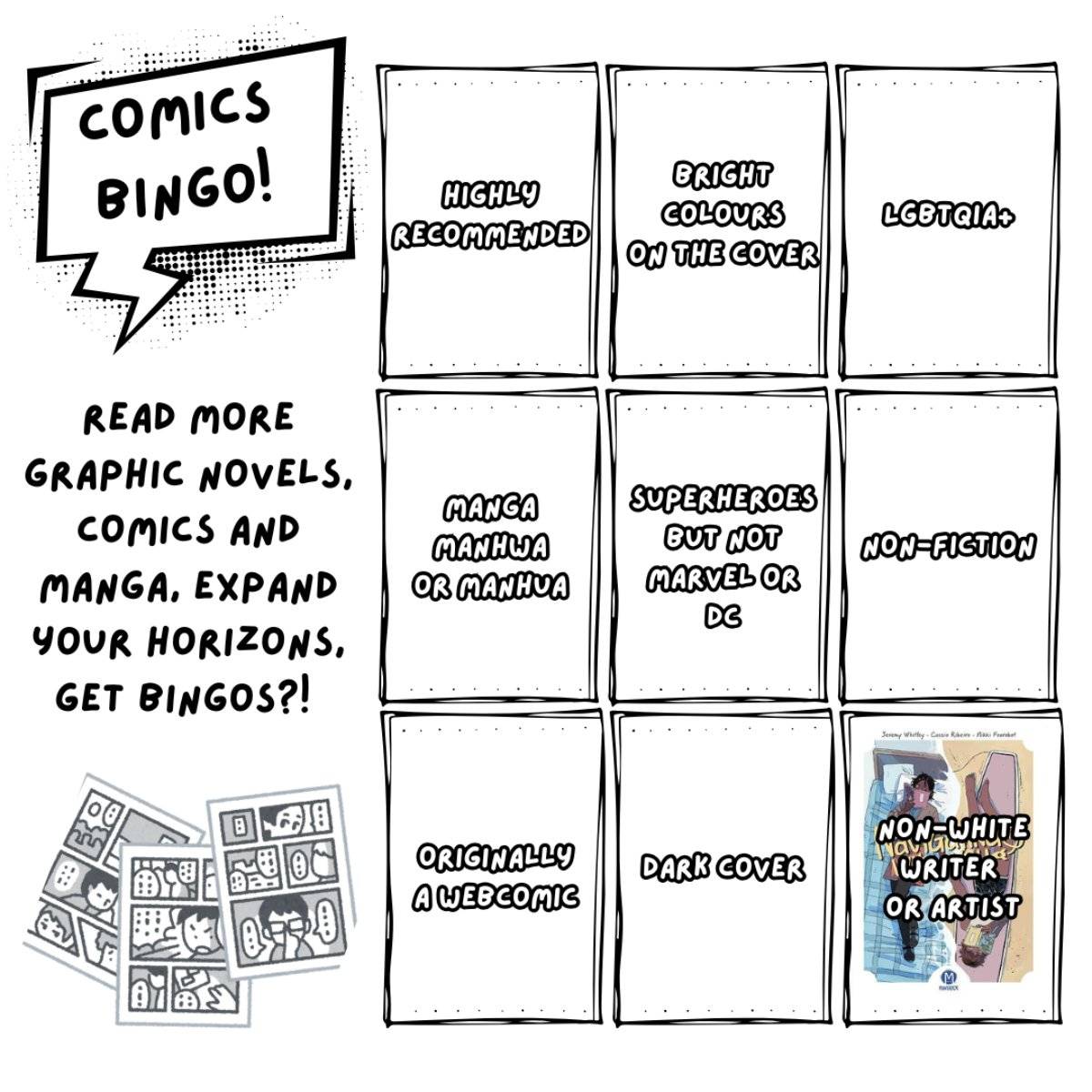
Fun book in which two girls start reading a shoujo manga together to get close, and start revealing themselves to each other, fall in love, etc. It's really cute.
Aaand I decided to do do another #ComicsBingo card since I said it'd be until the end of December, and I need to read some extra books to catch up with my reading goal! The illustrator of this book is Brazilian.